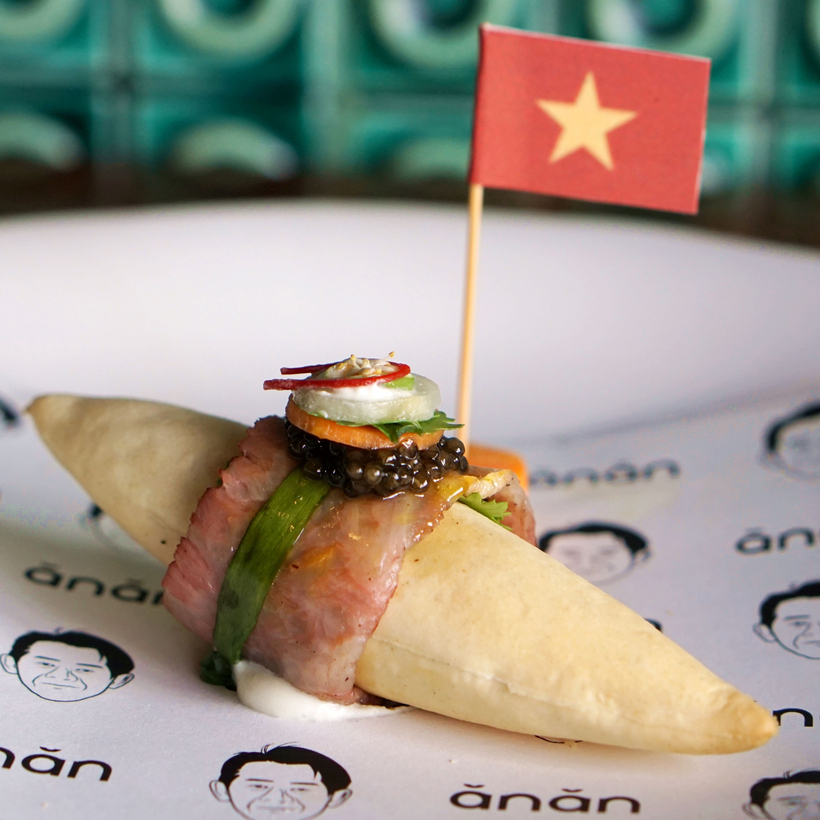When the Vietnamese-American chef Peter Cuong Franklin was 12, he was helicoptered out of Saigon to an American aircraft carrier on one of the last Hueys to escape the victorious North Vietnamese Army as it marched into the city on April 30, 1975. Seven years ago, facing the catastrophic collapse of both his business and his personal life, he returned—this time, on a commercial jetliner.
Two bad breakups—a split with the financial backers of his previous restaurant, Hong Kong’s popular Chôm Chôm, along with a divorce from his wife of nearly two decades, a professor at Hong Kong’s Chinese University—had left him emotionally devastated, and all but broke. The circumstances of his departure from Hong Kong, which he declines to discuss, have marked him for life—literally. Franklin has been undergoing laser treatments to remove the large tattoo of Chôm Chôm’s logo that still decorates his right inner forearm.


